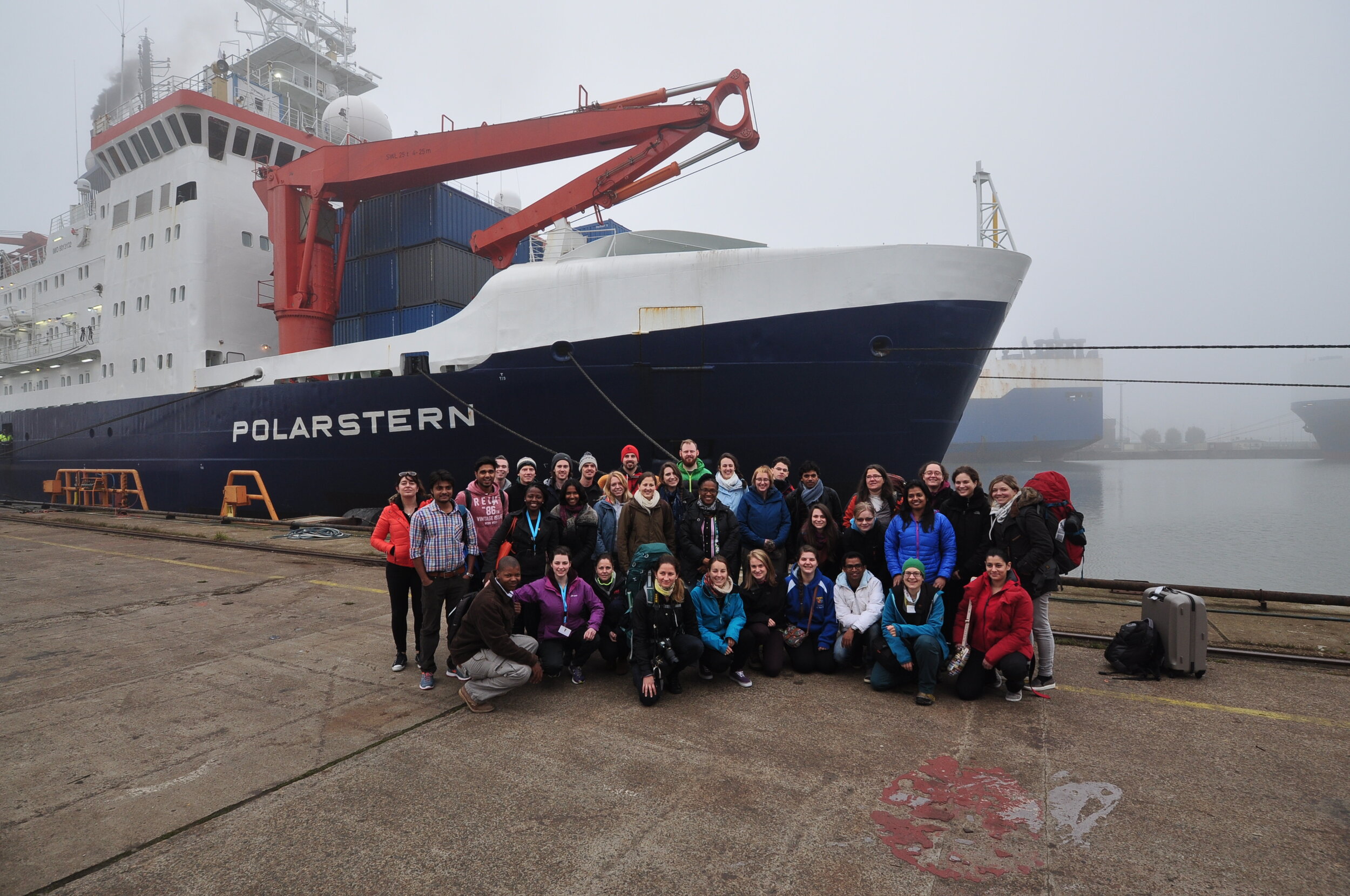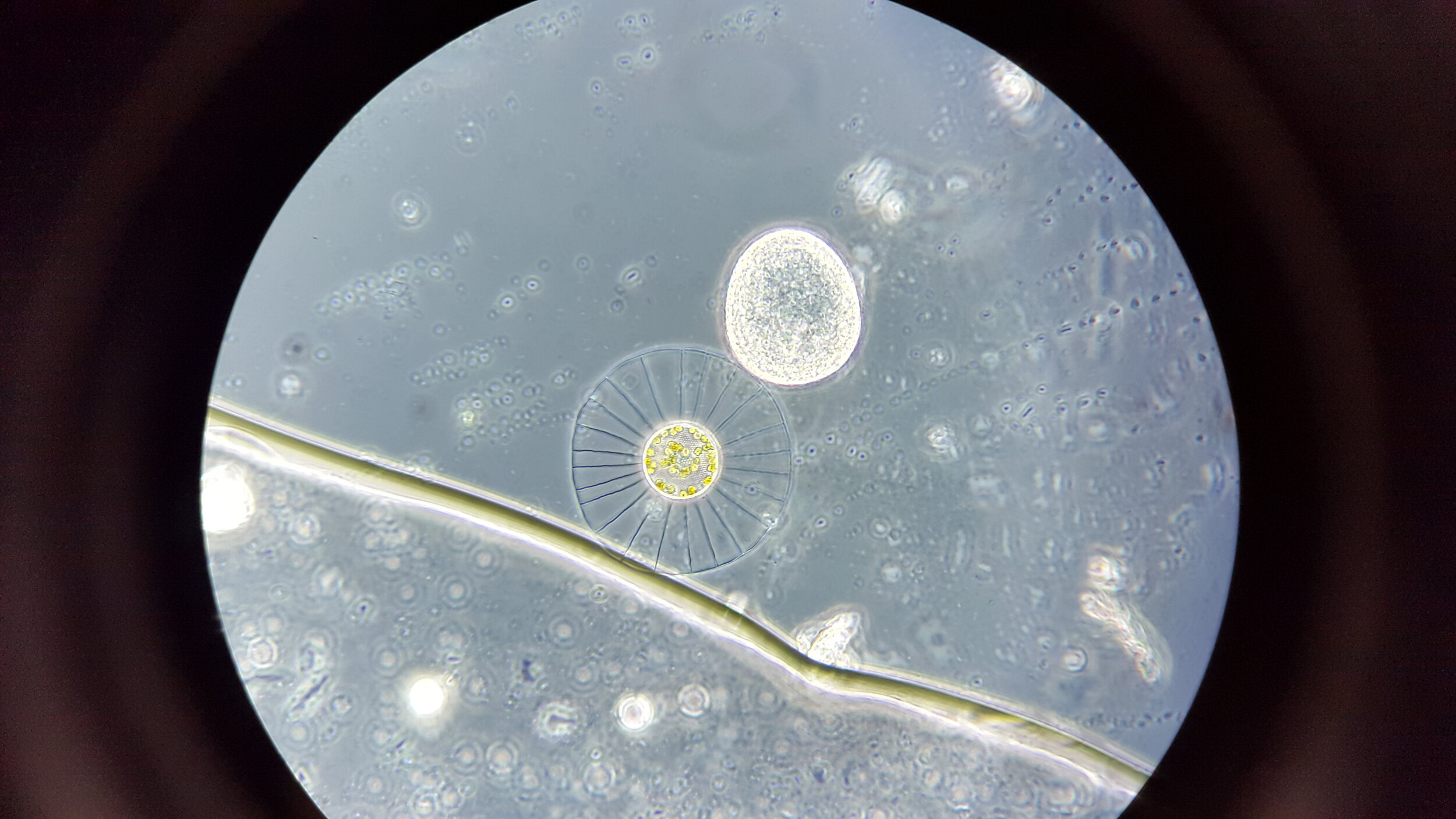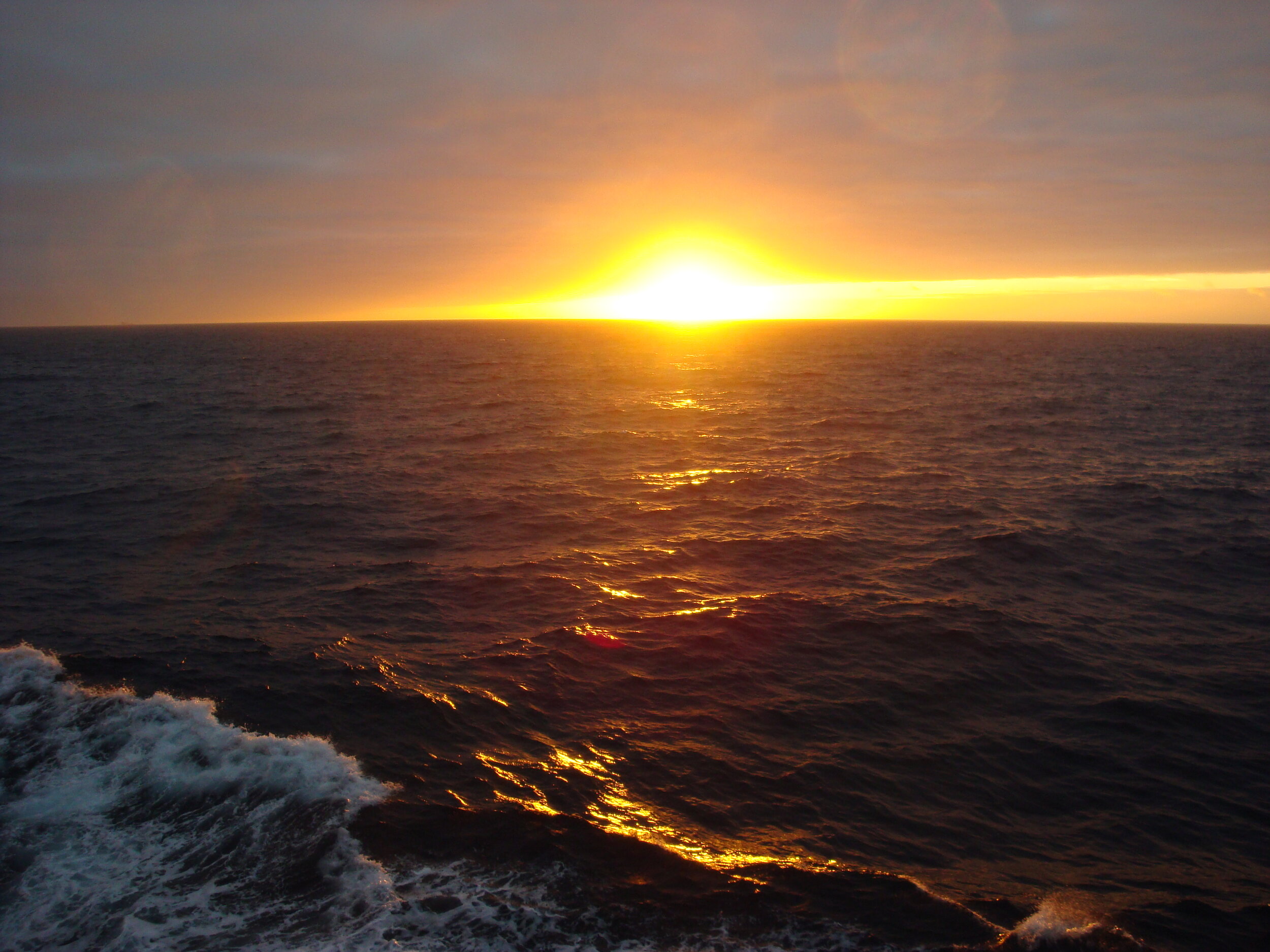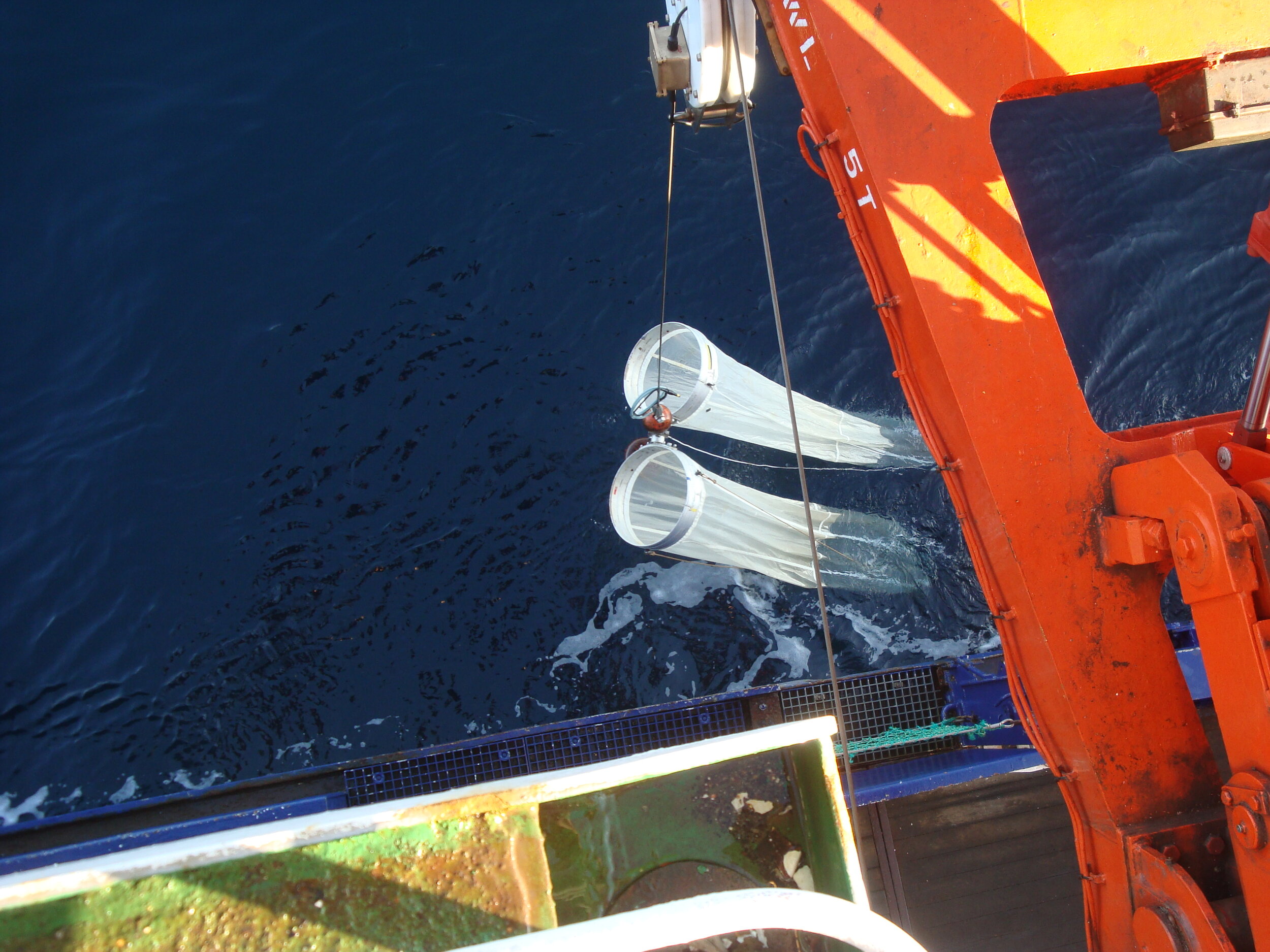My Journey Across the Atlantic Ocean
If I were to use one phrase to describe the year 2015, the phrase that I would use would be ‘absolutely awesome’! For me, 2015 was a year that was characterised by a number of life-changing experiences! Although several events would have contributed to this description of 2015, in this piece, I will tell you about one of these extraordinary experiences; the 2015 Floating Summer School.
In July of 2015, thirty-two (32) students from nineteen (19) different countries around the world were informed that their application to participate in the 2015 Floating Summer School was successful. I was one of the lucky ones! The 2015 Floating Summer School was a five week course that was geared towards training participants in the field of Biological Oceanography. This training was to be conducted along the North/South Atlantic Training Transect (i.e. from Bremerhaven, Germany to Cape Town, South Africa) onboard the RV Polarstern. For someone whose only seagoing experience entailed sampling in the relatively calm waters of the Caroni Swamp/Gulf of Paria and the occasional ferry trip between the islands of Trinidad and Tobago, five weeks onboard the RV Polarstern was quite a feat. In October of 2015, participants met for the first time either on the way to or at Bremerhaven, Germany. There was a definite air of excitement amongst all the participants as the majority of us had never been on such a large research vessel before neither had we been on a research expedition that intended to traverse such a diverse latitudinal gradient. Upon meeting, there was an almost instant camaraderie amongst the participants possibly because we realized that for the next few weeks, we were each other’s family. Prior to boarding the vessel, participants attended a welcome reception at the Alfred Wegener Institute (AWI) which entailed a lecture by Professor Peter Lemke on ‘The Climate System and the Oceans’ and a tour of the AWI Ice Laboratory. Both sessions were particularly informative as the former set the context for our upcoming expedition whilst the latter gave us an overview of some of the polar research that was being conducted by the AWI.
Thursday 29th October 2015 was the day when we boarded the RV Polarstern! From the first glance, I along with everyone else was simply fascinated by the impressive vessel. During the first few days, the Polarstern left Bremerhaven harbour and made its way along the English Channel. Once onboard, students were rotated through 5 working groups (Tools, Oceanography, Remote Sensing, Phytoplankton, Zooplankton) for the duration of the cruise. Along the North/South Atlantic Transect, there were multiple sampling stations. Within the various groups, students got hands-on experience (i) conducting field sampling, (ii) processing samples, and (iii) analysing environmental data. Before moving on to the next working group, students had to present their findings based on the sampling that they had conducted and the data they had acquired at the relevant stations. During the expedition, some of the equipment that we used to collect and/or analyse samples were the CTD, Expendable Bathythermograph (XBT), Temperature/Conductivity/pH meters, Bongo/Calcofi/Plankton nets, Continuous Plankton Recorder (CPR), Ferrybox, Thermosalinometer, and Algae Analyser. Students were also introduced to the concept of using satellites to remotely sense the oceans, sessions were held regarding the preparation of scientific presentations and articles, team building exercises were conducted, and students were taken though the process of designing/setting up experiments using field samples.
In addition to the formal training that was received during the 2015 Floating Summer School, some of the priceless moments of the expedition that would remain forever etched in my memory are (i) the whales and dolphins we spotted somewhere in the vicinity of Las Palmas, (ii) the flying fish and Sargassum that we spotted once we started entering warmer tropical waters, (iii) the feeding of the squids during night time sampling, (iv) my first sighting of Planktoniella sol under a microscope, (v) the spectacular sunsets that we saw along the way, (vi) the feel of the Equator-ward winds that I’d been reading about, and (vii) the seals and cormorants that greeted us upon arrival in Cape Town. No journey, however remarkable, would ever be as good as one that was spent in the company of awesome people. Having said that, I must mention that one of the highlights of the 2015 Floating Summer School was being able to meet and interact with a group of remarkable students and scientists from around the world!
How could a year not be awesome when you’ve had the opportunity to travel out of Bremerhaven harbour into the English Channel, pop into the Bay of Biscay, zip to the top of the Ampere Seamount, spot Las Palmas and the Cape Verde Islands, hover at midnight over the Equator, sail along two upwellings ecosystems (Canary and Benguela) and safely disembark at Cape Town Harbour?
Written: January 2016



